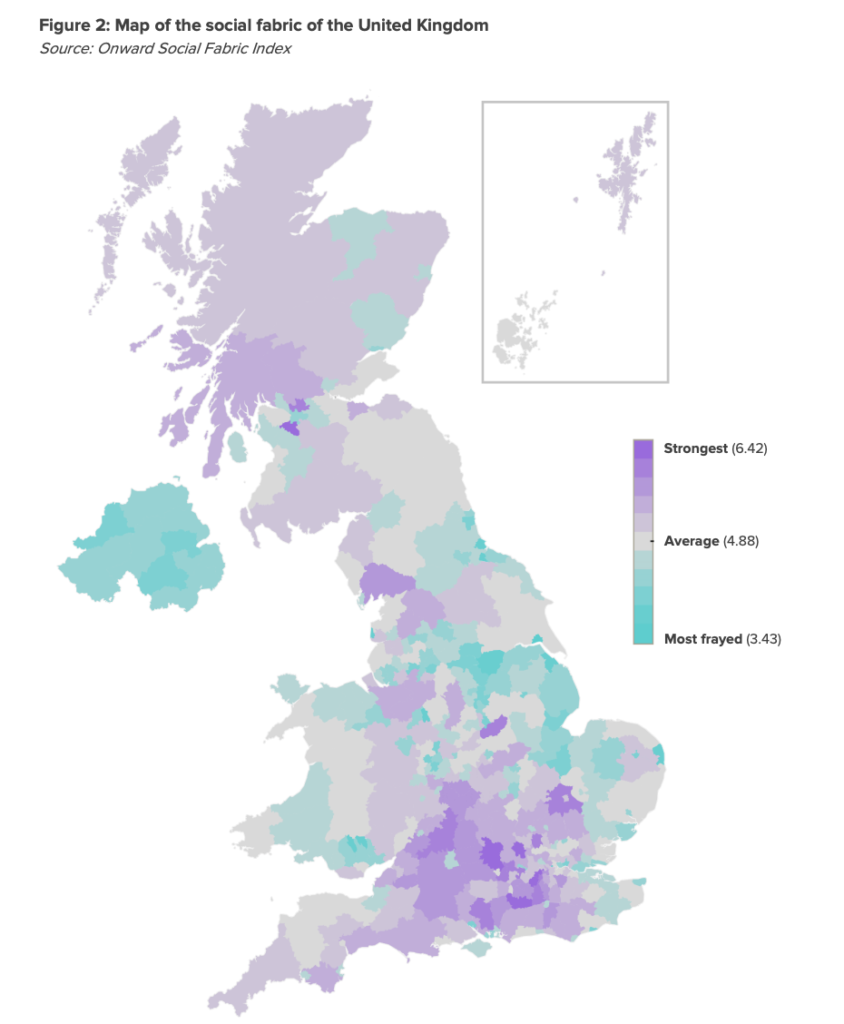When the Centre for Social Justice published its Breakdown Britain report in 2006, the response was a meltdown from the liberal commentariat.
Our society is not broken, they insisted, in fact it’s never been safer or fairer or more tolerant etc etc. As for divorce, drug misuse and other supposed social ills, those are a price worth paying for personal freedom — and, besides, they’re nothing we can’t cope with.
In some ways, the liberal critics were right. It’s been decades since the social revolutions of the 1960s and 70s and society hasn’t collapsed yet.
Except that the negative consequences were not distributed evenly. Old social structures and norms that were merely loosened in some parts of society collapsed elsewhere.
Yesterday, the Onward think tank launched The State of Our Social Fabric — which reveals major geographical inequalities in the strength of communities. The authors look across a broad spectrum of indicators including local infrastructure, crime levels, family life and volunteering, to calculate an overall Social Fabric Index.
Based on local authority areas this produces the following map:

If you’re wondering what this geographical distribution of social capital reminds you of, then take a look at a map of the Brexit referendum results. Basically, the more frayed the social fabric is in an area, the more people voted to leave the EU.
Of course, there were some factors relevant to the referendum result that the Social Fabric Index isn’t designed to capture e.g. the student vote or Scottish, Welsh and Irish nationalism. But in England, at least, the overall pattern is glaringly obvious.
It’s not difficult to understand underlying drivers. Strong family and community structures provide security — and to some extent, a sense of identity. “Taking back control” doesn’t seem so relevant when you feel safe and know where you belong.
Because prosperous, liberal Britain doesn’t understand the nature and extent of this privilege, it can’t grasp what it’s like not to have it — or to fear for its loss. Just because society isn’t broken for them, the assumption is that it isn’t broken for anyone.
In 2016, they paid a heavy price for that misconception. But they can’t say they weren’t warned.








Join the discussion
Join like minded readers that support our journalism by becoming a paid subscriber
To join the discussion in the comments, become a paid subscriber.
Join like minded readers that support our journalism, read unlimited articles and enjoy other subscriber-only benefits.
SubscribeAt a casual glace what’s slightly surprising here is that rather than the south-east vs north-west, the division seems to be for England and Scotland at least, more west/east. Not the foggiest idea why, or why the Isle of Wight is such a ‘most-frayed’ black spot.